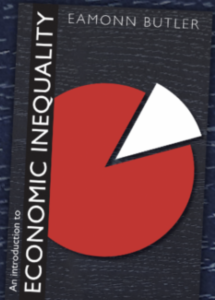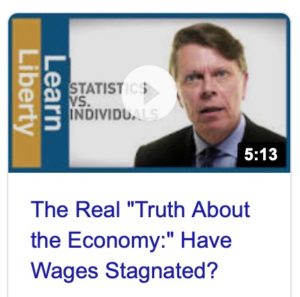Debating Economic Inequality (again)
National and Texas debate resolutions this year focus on policies to reduce economic inequality. Wealth and income inequality are highly-charged campaign issues with newspaper and evening news stories and comedy segments peaking in the months before national elections.
• UIL Texas Fall LD topic: Resolved: Wealth inequality in the United States is detrimental to democracy.
John Oliver’s Last Week Tonight segment on “Income Inequality” from 2014 now has over 17 million views. (That’s so unfair! My video on income inequality will have little chance for equal viewership.) With the Supreme Court’s Citizens United decision, corporate expenses for production and broadcast of shows and documentaries on partisan topics are protected from Federal Election Commission restrictions and regulations. Otherwise Time Warner/HBO comedy segments and documentaries advancing partisan positions could be regulated as campaign expenditures.
There are many videos discussing and debating income equality, including the engaging Robert Reich documentary, Inequality for All. A Bill Moyers show features discussion with Reich, and excerpts from the documentary.
At the beginning of the Bill Moyers show, Reich says democracy is corrupted by capitalism and “the first thing you’ve got to do is get the big money out of politics.” Next the PBS show lists over a minute of foundations and a few individuals that fund the show to advance the political views of Bill Moyers and Robert Reich. All the foundations are corporations and have staffs, boards, and donors that are Democrats. (Republican and libertarian staffed foundations fund counter or contrasting documentaries.)
Progressive foundations are free to express and fund their political and policy views. But how is this getting the big money out of politics? With their IRS approvals and 501(c)3 nonprofit status, the foundations can’t donate directly to political parties, but they can and do fund television shows and documentaries whose content is more political than balanced or scholarly.
Debaters should appreciate the online Intelligence Squared video featuring Robert Reich, Art Laffer and their debate partners on the topic: The Rich Are Taxed Enough. October 22, 2014 is the Intelligence Squared follow-up debate in New York City, now available from NPR: Income Inequality Impairs the American Dream.
Don Boudreaux gives a response to an earlier Robert Reich video on income inequality in his short video on income inequality in this LearnLiberty.org video.
Economies are dynamic and for the U.S. economy, many shifting realities challenge statisticians, making changes hard to measure and easy to misread. Don Boudreaux outlines some of these changes and notes how simple statistics can be misleading.
Consider for example the way immigration can increase apparent income inequality. For the eleven million immigrants from Mexico since the 1970s, their incomes improved since arriving in the U.S.. But though most have wages far higher than the average in Mexico, most still earn far less than U.S. averages, so they pull average U.S. wages down. Even though immigrant workers add to the U.S. economy by producing goods and services, just moving from there to here makes income inequality look worse.
Tyler Cowen’s 2014 New York Times column notes that income inequality is decreasing worldwide, thanks to increases in global trade, investment, and migration, combined with market reforms in countries around the world. World income inequality has continued to decline since, as wages in China, and other once-poor countries have continued to increase more rapidly than wages in Europe and America.
There is much more in the income inequality debate. In the end, most are interested in justice and are skeptical of economic realities that seem unfair. Do people with high incomes and corporations with high profits have special legal privileges that protect their income and profits? Such legal privileges are or would be unfair and inequitable. Are there more reasons some achieve and earn so much more than others? How can societies or governments help reduce unjust inequality without forcing unjust transfers from those whose income and wealth was justly acquired?
One factor increasing income inequality in America is speech and debate. Students spending hundreds of hours researching, thinking, practicing, and debating ideas, values, and policies (instead of watching videos or playing video games), leads to wider income inequalities. So, take a break, relax, and help equalize future skills and incomes.

Eamonn Butler provides An Introduction to Economic Inequality (June 27, 2022), available online from the Institute for Economic Affairs.
See also posts on the Goodman Institute Debater Resources webpage and case suggestions for Reducing Taxes on the Poor and Welfare Reform.

